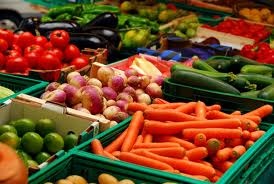
The Food and Agriculture Organization (FAO) has noted that about 20 million people in the Sahel are still affected by food insecurity and are likely to see their situation deteriorate rapidly in 2015.
A statement from FAO said already, nearly three million people across Burkina Faso, Nigeria, Niger, Chad, Cameroon, Mali and Mauritania do not have access to enough food and require urgent food assistance.
FAO believes that in the next few months, the poor harvests and pasture deficits of 2014 will lead to depletion of food stocks and livestock degradation for the most vulnerable families during which time they will turn to survival strategies such as reducing the number of daily meals, contracting debts and selling their productive assets.
The situation is further compounded by frequent population displacements due to conflicts and insecurity in Nigeria, Mali and the Central African Republic, since refugees often rely on the limited food reserves of their host communities.
The FAO is therefore appealing for a total of $116 million to assist more than 5.4 million people.
“By taking immediate measures to protect and support agriculture, partners have the opportunity to help people recover from crises with dignity and prevent the degradation of livelihoods in the Sahel. Immediate support is required for this extraordinary assistance in a context of growing insecurity that lead to important population displacements and reduces humanitarian access,” said Vincent Martin, Head of Sub-Regional Hub for Resilience and Emergencies in West Africa / Sahel (REOWA).
The FAO’s proposed intervention activities are to help the vulnerable maintain food production, provide inputs for the next planting season due to start in May and provide veterinary care and animal feed to prevent losses in the pastoral lean season.
The FAO also aims to address the underlying causes of vulnerability by embarking on programmes such as the production of seeds adapted to climate change and rehabilitation of degraded land to strengthen food and agricultural systems in the Sahel.
In 2014, FAO provided immediate assistance to more than 3 million farmers and herders in the Sahel to strengthen their food security and nutrition.